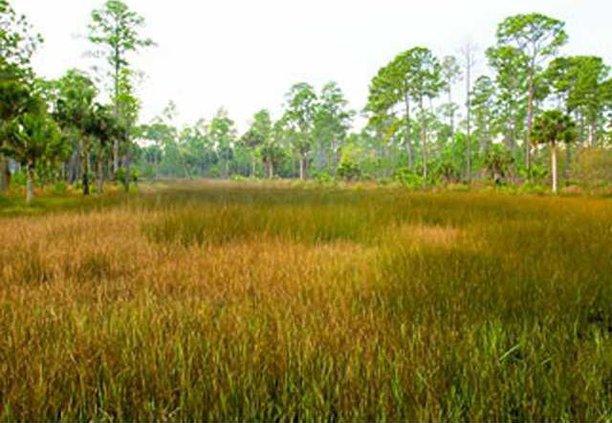Liberty County’s eighth annual Rivers Alive cleanups are scheduled for Saturday, with registration starting at 8:30 a.m. at more than 40 locations around the county.
There is time to register and be a part of one of the largest organized Rivers Alive events in South Georgia, according to the state Rivers Alive office. Often, the focus for Rivers Alive events seems to be on actual bodies of water, but we believe that these cleanups are just as essential for protecting our marshes and wetlands, too. As a coastal county, we have an abundance of these areas and they are just as valuable — and as vulnerable — as our large and small waterways.
So what is a wetland? According to the St. Johns River Water Management District website, a wetland is an area that is flooded or soaked by ground or surface water frequently or for prolonged periods. A marsh is a specific type of wetland. I have always loved the particular beauty of marshes — healthy ones, that is — as much as I love being around waterways.
We live next to a large marsh in the east end of Liberty County. It is an incredibly peaceful setting. Marshes and other wetlands have many benefits for all of us, in addition to the beauty they provide (per sjrwmd.com):
• Cleaning, or filtering, pollutants from surface waters
• Storing water, such as storms or runoff and preventing flood damage to developed lands
• Recharging groundwater
Healthy wetlands also serve as nurseries for saltwater and freshwater fish and shellfish that have commercial, recreational and ecological value. They also are the natural habitat for a variety of fish, wildlife and plants, including a number of rare, threatened, endangered and native species.
Given the environmental importance of wetlands, state policies seek to prevent or minimize the loss of wetlands. Per sjrwmd.com, anyone proposing construction of new facilities, including governmental agencies, developers building new residential or commercial areas, or anyone who wants to fill in wetlands, must have an environmental-resource permit. Managing development is crucial for protecting these wetlands, but as local citizens, we also have a hand in protecting these valuable areas, too.
The saying we all live downstream is true. What happens in the west end of the county and even far beyond there can have an environmental impact on our wetlands and, ultimately, our waterways, too. So we all need to consider what choices we make at our homes and businesses each day that can create a negative impact. Over-fertilizing lawns, emptying debris in or near storm drains or even directly into wetlands, the overuse of pesticides, etc., are all choices that we can control.
At Keep Liberty Beautiful, we also believe that removing as much litter and debris from our roads and public areas before they end up in a wetland or stream is essential to keeping these areas as healthy as possible.
We encourage you to give a few hours Saturday to protecting these waterways and wetlands so we can all enjoy their beauty and other benefits. Register your organization, church group, business or family today and invest the health of our community and its waters. Call KLB at 880-4888 or email klcb@coastalnow.net.
Also, it is not too late to register for the Liberty County Chamber of Commerce’s PTP Luncheon at noon Thursday at the Liberty County Performing Arts Center. Walter Reeves, Georgia’s Gardener, will be sharing information on native plants and coastal gardening. Tickets are $15 for chamber members and $20 for non-members. Make a reservation by Monday by emailing assistant@libertycounty.org or calling 368-4445.
Upcoming KLB event
Nov. 9 — St. Catherines Island Beach Sweep. Space is limited. Email klcb@coastalnow.net.
Help waterways, wetlands in Rivers Alive
Keep Liberty Beautiful


Sign up for our e-newsletters